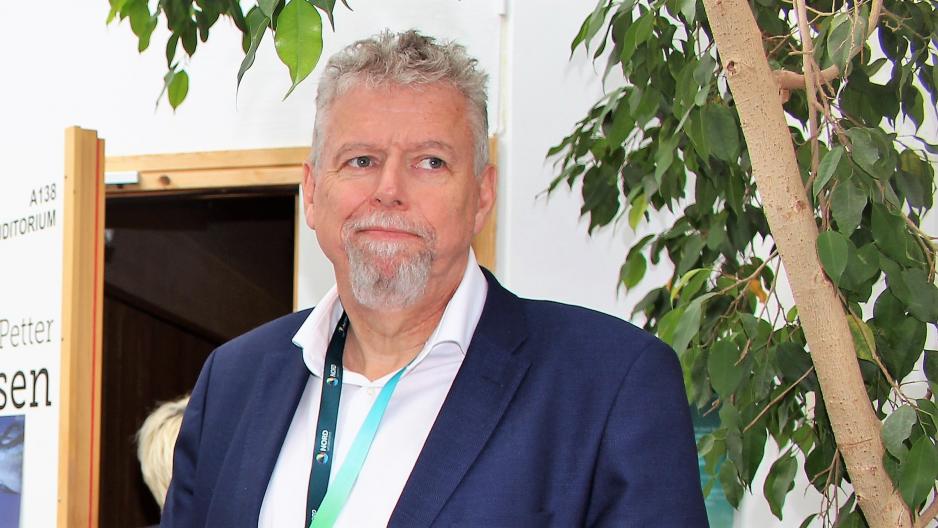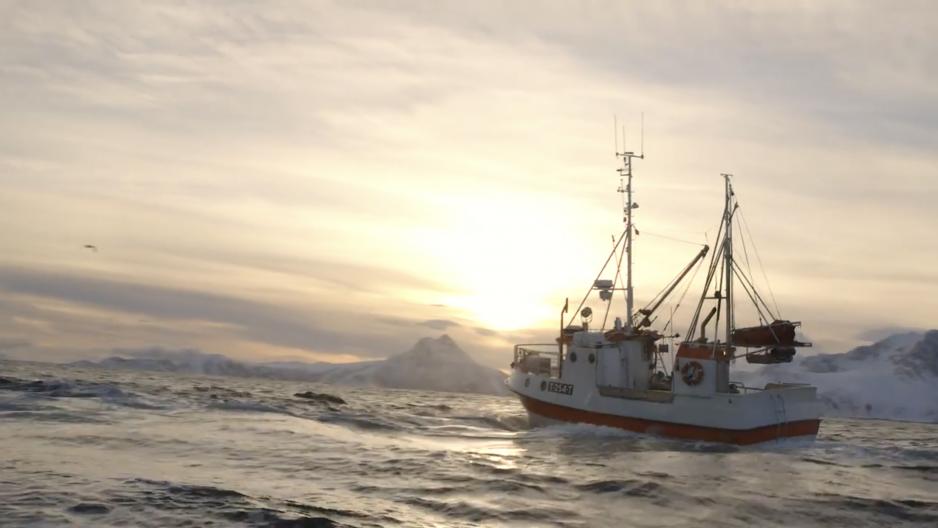Secretary General about Fishermen’s Association Revolt: Serious for the Organization

Secretary General Otto Gregussen of the Norwegian Fishermen’s Association says the NFA North decision to leave the organization is a serious reminder that there is work remaining when it comes to discussing how the organization is to be organized in the future. (Photo: Trine Jonassen, High North News)
“There is no intention about treating input from either NFA North or others in a way that is not fully and completely serious”, Secretary General Otto Gregussen of the Norwegian Fishermen’s Association says to High North News following the decision of NFA North to leave the organization in protest.
“We did not know beforehand that it had come so far that they were to decided to leave the organization. It is serious for any organization that one of its members decides to take such measures and we do of course take it very seriously”, Secretary General Otto Gregussen of the Norwegian Fishermen’s Association says to High North News.
NFA North last week decided to leave the professional and industrial organization for professional Norwegian fishermen, the Norwegian Fishermen’s Association.
“This has built over time and grown increasingly polarized”, said Chairperson of NFA North, Roger Hansen. According to him, individual members and local chapters are unhappy with the fact that issues and input brought to the organization by coast-based fishermen in Troms and Finnmark are not adequately processed and followed up on key levels of the organization.
Also read
A question of sharing the sea
Secretary General Otto Gregussen of the NFA says its goal is to process all input in a serious manner.
“Of course, you can never guarantee that it could not have been done better, though there is no intention about treating input from either NFA North or others in a way that is not fully and completely serious.”
The NFA North argues that its complaint has to do with, amongst others, challenges to the smaller coast-based fleet when larger, modern vessels fish in the same areas near the coastline as the one they have their livelihood in.
The Secretary General stresses that the NFA understands that the NFA North raises these issues.
“We have just conducted a major internal investigation looking at how this kind of conflict situations emerge. We have also asked the Fisheries and Fish Farming Industry’s research funding to look into whether the developments in the fishing fleet have simply caused a diverging competition situation for the various groups [into which the fleet is organized, ed.note.].
Chairperson of the Norwegian Fishermen’s Association Kjell Ingebrigtsen adds that there has not been much difference in the processing of the issue of sharing of sea areas and access to areas compared to other issue areas.
“What I perceive from the NFA North in this case is that it is particularly concerned with the fact that it has taken too long to reach a conclusion, though in difficult matters it is important to take sufficient time”.
Then there are situations in which one can envision a need for some administrative capacity to set the agenda.

The nationwide organization Norwegian Fishermen’s Association has members along the entire coastline and these have a variety of interests. Conflicts in the fishing industry has often emerged between coast-based fishermen and the ocean-going fleet. (Photo: Barentswatch)
Capacity and resources
How would you describe the balance of power within the Norwegian Fishermen’s Association?
“Within the NFA organization, most of the votes are at the hands of coast-based fishermen all over the country, and there are fewer votes on the hands of the ocean-going fleet. I notice that some argue that the distribution of votes is not what is important. However, that is what we relate to when we have to take a vote on issues we discuss”, says Otto Gregussen.
How is the balance of power when it comes to resources available for promoting one’s interests?
“I would argue that everybody have equal opportunities to promote their interests. Then there are situations in which one can envision a need for some administrative capacity to set the agenda. And in that respect, the ocean-going fleet is gathered into one organization whereas the coast-based fishermen have a series of organizations. To the extent that this matters, there is probably some truth to the claim that it is easier for the organizations that hold investigative capacity”, he adds.
Chairperson of NFA North Roger Hansen also said in a previous interview with High North news that the coast-based fishermen appear to hold a majority of the votes in the organization.
“However, if you look like a corporate member such as the fishing boat owner’s association [‘Fiskebåt’, organizing the seagoing fleet], they have more resources in the form of economy, competence and investigative capacity to argue their case when issues are raised and investigated. In addition to investigative capacity, they also hold the resources it takes to be present where important decision-makers are and where decisions are made.”
Organizational structure
Kjell Ingebrigtsen points out that they have tried through various initiatives and national conventions to change the structural design of the organization and argues that there are possibilities for coordinating resources in a better way.
“It is well known that the NFA for a long time has admitted that there could have been changes made in the organization to make it lighter and to use our resources more wisely on an overall basis. This is a powerful reminder that there is still some work to do before we can say we are done discussing what the organization should look like in the future”, Gregussen says.
Roger Hansen of the NFA North argues that it takes a change of attitude within the organization in relation to the smaller and more traditional coast-based fleet, and that reactions such as leaving the organization comes when there is a feeling of not being adequately treated.
What do you think about this?
“I am sure everyone of the Norwegian Fishermen’s Association acknowledge that this is a prevailing feeling, and we will have to discuss with them what the concrete foundations for this feeling is and what we potentially could have done better”, Gregussen says in closing.
This article was originally published in Norwegian and has been translated by HNN's Elisabeth Bergquist.



